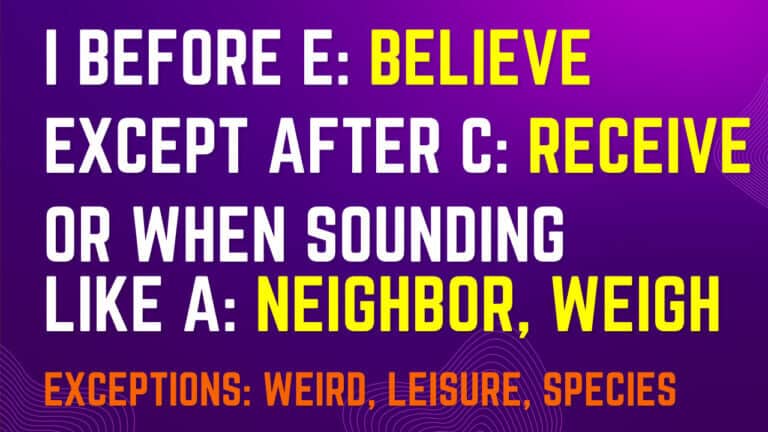This is a guest post by Joan Selby. Read more about her at the end of the article!
As in any language, writing is an important part of mastering the English language. You cannot get out of writing, even in work that appears to involve face-to-face conversation. Recent studies show that employers prefer those with better writing skills over those who have poor grammar or who make typographical errors often.
This doesn’t just stay in the workplace, either. Interacting with others whether online or offline also requires some form of writing skill. As an English language learner, this is one of the biggest points in your learning curve that you must master.
Thankfully, we have some tips on identifying and correcting common writing errors for language learners. Here are five of them:
1. Spelling Mistakes
Some spellings come to us intuitively, and others take a longer time to process. Some words in English are spelled the way we say them, which is easy especially if it’s not your native language. The real challenge is having extra vowels, or in some cases interchangeable letters that go by unnoticed because they sound natural when we say them.
Here are a few examples:
- cemetery – often misspelled as “cementary” or “semetry”
- independent – sometimes misspelled as “independant“
- receive – misspelled as “recieve“
Other than these, there are also words in the English language that can be misspelled because they have repeating letters. Below are a few of such words:
- commitment – misspelled as comitment or comittment
- tomorrow – misspelled as tomorow or tommorow
2. Misplaced and Misused Punctuation
When looking at phrases or even full sentences, you may notice that sometimes you have misplaced punctuation, or the punctuation use is not fit to the tone of the statement. Although some punctuation points like periods or exclamation points are easy enough to track down, it can still be difficult to decide when to end a sentence.
Extremely lengthy sentences, often called run-on sentences, are difficult to read and are created by misplaced punctuation.
To identify and correct punctuation misuse, try saying the sentence out loud first. This time, you will need to be knowledgeable enough to speak the language so you know where the appropriate pauses will be.
Punctuations are signifiers for the reader to rest, or to highlight a certain emotion. Take note of this when looking at sentences.
Example: “The, quick brown fox, jumped over the lazy dog.”
The sentence above is wrong because when said aloud, it makes no sense to take a breath after “the” or “fox”. The correct form would be: “The quick brown fox jumped over the lazy dog.”
Here’s an example of using commas correctly in a sentence: “Peaches, which are my favorite fruits, are the main ingredient in this pie.”
The commas are located before and after the dependent clause “which are my favorite fruits” – this adds some extra information to the sentence, and when saying it out loud it’s natural to pause briefly before and after this phrase.
3. Misplaced Modifiers
Samantha Wright of EduGeeksClub.com has this advice, “Think of modifiers as phrases or words in your sentence that describe the subject.” Putting this in the wrong order can confuse your reader or change the sense of your statement.
Even very fluent English speakers and writers make this mistake unintentionally. The only way to prevent it is to be vigilant in spotting your error as soon as possible.
To give you an idea of what it looks like and how it affects readers, here’s an example:
“The girls sat on the ledge, who were pretty, and intimidated him.”
In the sentence above the modifying phrase “which were pretty” is supposed to describe the subject, which is “The girls”. But the immediate impression it makes on the reader is that the phrase actually describes the ledge because it comes directly after that word.
The correct order then would be: “The girls, who were pretty, sat on the ledge and intimidated him.”
Here are more examples of misplaced modifiers and how to correct them.
The Takeaway: Good Writing Matters!
As a language learner, you want to master every aspect of what you’re learning. This means focusing not just on speaking the language, but also learning to write it.
Learn to identify errors early on so you’ll know how to correct them. Remember that good writing skills matter, and that you should always find ways to perfect this part of the learning process.
Joan Selby is an ESL teacher and a blogger; a graduate of California Institute of the Arts and a fancy-shoe lover; a writer by day and reader by night, giving a creative touch toeverything. Check her Guide to Last Minute Essay Writing. Find her on Twitter and Facebook








